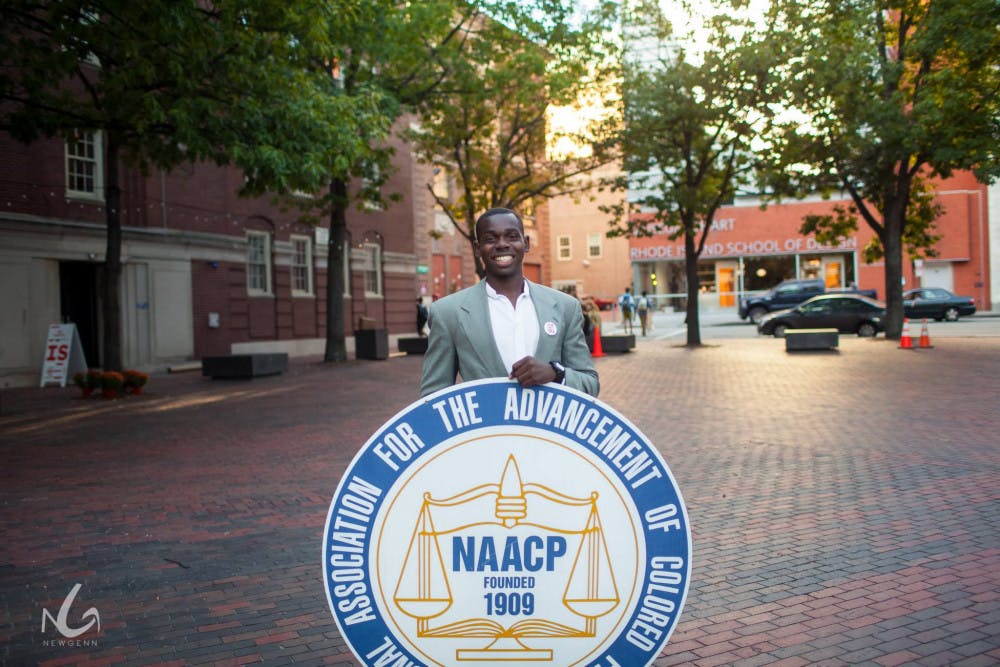Langston Hughes once asked an eternally relevant question: whether a dream deferred dries up, like a raisin in the sun. Despite every challenge, we have held onto our dreams. Instead of shriveling up, our dreams, watered by the sweat of our labor, on this day bear fruit.
Graduation seemed so far away nearly four years ago, when we gathered to hear from President Christina Paxson for the first time. It seemed impossibly distant to an over-anxious Black kid with hair dyed an awkwardly light brown and a distinctively Southern accent.
Many bonded over the book “Sons of Providence: The Brown Brothers, the Slave Trade, and the American Revolution” by Charles Rappleye as first-years. For me, “A Hope in the Unseen,” a book by Ron Suskind about Cedric Jennings, a student who came to Brown from inner-city Washington, D.C. in 1995, resonated more. Over the years, I came to understand his emphasis on faith and community.
Like Cedric, I arrived Black, underprepared and lost. Neither Cedric nor I knew of Brown until senior year of high school. When accepted, we were told that we were “lucky,” admitted not because of our intellect but rather a sports scholarship or affirmative action. Such assertions soon bred insecurity.
Coming from an underserved high school, I questioned my ability to find success and purpose here. Looking at the cost of attendance, I asked how I could afford this school. Realizing Brown’s flawed legacy, I asked how I could make change. Finding Brown difficult to navigate, I ran to my parents for validation. My mother still calls me every single day to make sure I feel supported! We all have made it this far because someone sustained us with that same love and encouragement.
As the first in my family to attend an Ivy League institution, I felt a huge responsibility to prove that I would not squander their investments. Many of us have also pushed ourselves to repay the sacrifices made by our families and communities on our behalves.
I battled daily with “imposter syndrome,” which causes marginalized students to feel undeserving of their accomplishments. I silently internalized this pressure while weathering the challenges of being young, Black, ambitious and broke.
At one point, I began an application to transfer. But where was I going? To escape my issues, I would have had to transfer into another body! That same month, I expressed my anxieties to my hero, Rep. John Lewis, D-GA. He asked me: “Son, what are you afraid of? We’re all rooting for you. We have your back. Always.”
Inspired, I worked to reconnect with the community that I had stepped away from during my internal crisis. This was one of the best decisions that I have ever made, and soon I made one of my next best: to withdraw my transfer application.
Though I still often questioned the possibility of being both Boldly Brown and Boldly Black, I had realized my purpose here: to help strengthen our community through activism. We recognize our institution as our forebears did: living and constantly changing. Change requires challenging the status quo. Activism requires one to both have faith that others will prove receptive and to love Brown enough to sacrifice to make it ever truer.
We have created incredible solidarity here, many times over. During the community mobilization supporting sexual assault victim Lena Sclove ’15.5, we stood together. During the last Convocation, when Paxson and Professor of Africana Studies Tricia Rose discussed Michelle Alexander’s “The New Jim Crow,” covering mass incarceration, police brutality and voter suppression, we listened together. During the campaign to improve the Diversity Action and Inclusion Plan, we mobilized together. On May 29, at Brown’s 248th Commencement, we will graduate together.
We live at a time in which the climate of blatant and undisguised intolerance towards marginalized communities has reached a fever pitch. Despite hopes that our country was making progress, we are reminded of reality. In the midst of these times, I challenge my classmates to remain advocates for change and inclusion, wherever we find ourselves.
Serving as advocates for change requires educating ourselves as allies, opening ourselves to criticism and working unceasingly to obliterate racism, sexism, classism, transphobia, homophobia, xenophobia, religious intolerance and all other forms of discrimination, in any and every instance. We must reject blissful ignorance and comfortable silence in the face of oppression. Silence is divisive. Silence is complicity.
How can we maintain hope and faith in a world resistant to change? To this point, “A Hope In the Unseen” comes back to mind. Cedric’s mother once remarked: “The race … goes not to the swift nor the strong, but (to those) who endureth until the end.” In Brown, we have a strong community that has endured for over 250 years. If we endure similarly in the pursuit of justice, we can achieve a more just world.
The slogan “Brown Together” encapsulates us all. Brown belongs to every one of us. Brown is the people who built it. Brown is the people who push the institution to improve. Brown is Inman Page. Brown is Paxson. Brown is the people of Providence. Brown is the parents, friends, administrators, faculty and staff who have supported us through it all. Brown is both the privileged legacy student and the student from an underserved public high school. Brown is Cedric Jennings. Brown is me. Brown is you.
We must seize the unique opportunity that we are given to battle injustice while recognizing our Brown privileges, questioning our assumptions and rectifying our ignorance. As Pulitzer Prize winner Alice Walker wrote, “We are the ones we have been waiting for.” Brown has shown us that in faith and community there is strength, and in strength there is power to effect change. Incredible things happen when we maintain, even in dark times, a hope in the unseen. Let us go forth and turn our unseen dreams into a reality.





